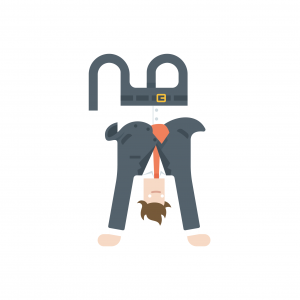In this article: How to make the best impression to prospective employers, at every opportunity. What employers look for and how to convince them you are the ideal candidate.
In 2012, Sir David Brailsford, Performance Director of the highly successful British Olympic cycling team, introduced a strategy of ‘the aggregation of marginal gains’
‘Find a ‘1% margin for improvement in everything you do.’
Tiny things, which on their own make little difference, but added together, those small gains can have a significant impact.
Source: The Guardian 2012

In this competitive environment, you want to come across well at every opportunity, at every point of contact (whether in writing, on the phone, or face to face). The basic preparation is the same for each stage of the application process:
| First, find out exactly what employers are looking for… |
Do your Research |
| …then convince them that you are the ideal candidate |
Tailor your Application Show why you’re interested in their company Show why you would be a good fit |
General Attributes Employers Look For
A recent survey showed that for around 70% of jobs, the degree subject is not directly relevant; and academic achievement accounts for only about 20% of the decision whether or not to hire a candidate. Employers attribute more importance to other factors such as personality, business and people skills, interests, extra-curricular activities and achievements.
Source: The Sunday Times
Presentation
First impressions really count! From written applications to personal contact – be your best!
Written: Demonstrate good communication skills – well presented, clear and concise, without grammar or spelling mistakes.
Personal: Look smart (right down to polished shoes!) Show confident body language, smile and make eye contact.
Good Manners
Make sure people remember you for the right reasons – manners are exceptionally important.
Be polite and friendly, in all communications, with all company contacts.
Research & Knowledge
Be enthusiastic, knowledgeable and fully up to date on their business and the job/scheme you’re applying for. Show you have done your research!
See Do Your Research
Tailor Your Application
Make the employer believe they are your number one choice, not one of hundreds you have applied to; a vague, generic application won’t get you very far.
At every point of contact, communicate your passion and suitability for that particular company and career path.
See Tailor Your Application
Personality
Think about how you come across.
Would you be a decent person to work with? What motivates you, what are your values? Would your temperament and methods suit the working environment?
Make the way you come across match the company ethos. You need to show that you would fit in well with their corporate culture on both a professional and personal level.
Work Life Balance – Show that you’re a well-rounded individual.
Draw on relevant experience from your whole life when describing accomplishments and transferable skills. Your interests and activities are a key indicator of ‘cultural and personality fit’. Are you someone the employer can relate to? Would you get on well with the team and clients? The fact you’re a keen photographer, help out in your local community, or play football for your local team might just seal the deal!
Be confident, but not over-assertive nor arrogant. Demonstrate excellence, but show humility.
Follow Up
It might seem obvious, but always thank people for their consideration/time/advice via email or letter.
Whether you have met someone for an informal networking chat, or you have attended an interview or assessment centre, a simple courteous thank you is important; in fact, it can make all the difference!
An Accountemps survey of HR (Human Resources) managers, found that ‘only 24% of HR managers receive thank you notes from applicants. However, 80% of HR managers say thank you notes are helpful when reviewing candidates.’
Many employers say they are less likely to hire someone who doesn’t send a thank you letter following an interview, and for some, that would be a definite dealbreaker.
A good follow-up should thank the interviewer for their time, and reaffirm your enthusiasm and your belief that you can do the job and would be a great fit. Make sure you send it promptly after the interview (within 24 hours), but don’t stress too much about what to write, as the gesture itself is what people will remember.
If you are asked to follow up with a reference/portfolio or anything else, be sure to do so promptly.
Even if people are unable to help or hire you, exit graciously.
